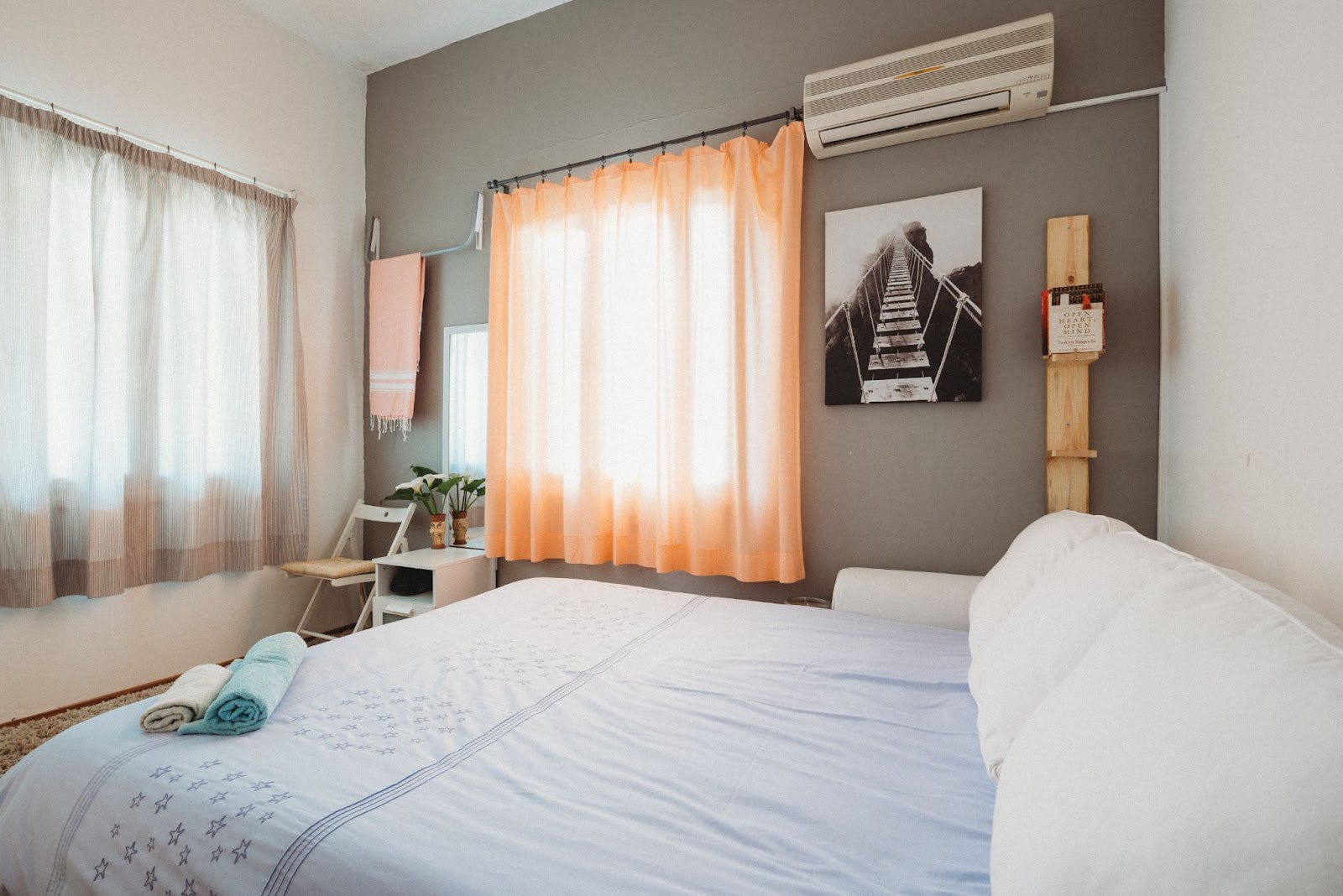Ever wondered what Airbnb really stands for? The name is more than just a catchy brand—it’s a story, a vision, and a whole lot of meaning packed into three simple syllables. If you’re curious about the origins and significance of Airbnb, you’ve come to the right place. Let me break it down for you in a way that’s easy to digest and super informative.
Airbnb isn’t just some random word thrown together by a marketing team. It’s a name that carries a lot of weight, both in terms of its origin and the message it conveys. From the get-go, Airbnb was designed to represent something bigger than just a platform for booking accommodations. It’s all about creating connections, fostering community, and offering unique experiences.
Now, before we dive deep into the meaning behind Airbnb, let’s set the stage. This isn’t just another travel app or website. It’s a global phenomenon that’s revolutionized the way people think about travel, hospitality, and even living spaces. So, buckle up because we’re about to unpack what makes Airbnb so special.
Origins of Airbnb: How It All Started
Let’s rewind to the beginning. Airbnb didn’t start out as the massive empire it is today. Back in 2007, two guys named Brian Chesky and Joe Gebbia were struggling to pay their rent in San Francisco. They had a brilliant idea: why not rent out air mattresses in their living room to people attending a design conference in town? And just like that, Airbnb was born—or at least the concept was.
The name Airbnb originally came from “Air Bed and Breakfast,” which perfectly described what they were offering back then: a simple air mattress and a cozy breakfast. It was humble beginnings, but it laid the foundation for something much bigger. The founders saw an opportunity to create a platform where people could share their homes with others, and the rest is history.
Fast forward to today, and Airbnb has become a household name. But the original meaning behind the name still holds true. It’s all about providing a place to stay, whether it’s an actual air mattress or a luxurious villa. The simplicity of the name reflects the simplicity of the idea: offering a bed, a roof, and a sense of belonging.
Breaking Down the Meaning of Airbnb
So, what exactly does Airbnb stand for? Let’s break it down piece by piece. The word “Air” doesn’t just refer to air mattresses (though that’s where it started). It also symbolizes freedom, movement, and the idea of traveling light. Who doesn’t love the idea of packing up and heading off to explore new places without being weighed down by too much baggage?
Then there’s the “bnb” part, which stands for “Bed and Breakfast.” This harks back to the traditional hospitality model where travelers could stay in someone’s home and enjoy a home-cooked meal. Airbnb took this concept and blew it up, making it accessible to millions of people around the world. It’s not just about a bed anymore—it’s about the entire experience.
Put it all together, and you’ve got a name that represents simplicity, connection, and the joy of travel. It’s not just about finding a place to sleep; it’s about finding a place to belong, even if it’s just for a night or two.
Why the Name Stuck
Now, you might be wondering why this particular name caught on. There are thousands of travel platforms out there, but Airbnb stands out. Part of the reason is its simplicity. The name is easy to remember, easy to pronounce, and easy to spell. It’s also descriptive enough to give you a sense of what the platform is all about without being overly specific.
But there’s more to it than that. The name Airbnb evokes a sense of adventure and possibility. It makes you think about all the places you could go and all the people you could meet. It’s not just a transactional platform; it’s an invitation to explore the world in a new way.
The Philosophy Behind Airbnb
Airbnb isn’t just about matching hosts with guests. It’s about fostering a sense of community and belonging. The company’s mission statement says it all: “Belong Anywhere.” This isn’t just some catchy slogan; it’s a core part of what Airbnb stands for. The idea is that no matter where you go, you can find a place where you feel at home.
This philosophy is reflected in everything Airbnb does, from the way it connects hosts and guests to the types of experiences it offers. Whether you’re staying in a treehouse in the woods or a penthouse in the city, Airbnb wants you to feel like you’re part of something bigger than just a vacation.
And let’s not forget the emphasis on unique experiences. Airbnb isn’t just about booking a place to stay; it’s about creating memories. From cooking classes to guided tours, the platform offers a wide range of activities that help you connect with local culture in a meaningful way.
How Airbnb Redefined Hospitality
Before Airbnb, the hospitality industry was dominated by big hotel chains. Sure, there were bed and breakfasts and other small-scale options, but nothing on the scale of what Airbnb has achieved. By creating a platform that connects people directly, Airbnb disrupted the traditional model and gave travelers more choices than ever before.
But it wasn’t just about offering more options. Airbnb also changed the way people think about travel. Instead of staying in a sterile hotel room, travelers could now stay in real homes, surrounded by real people. This human connection is what sets Airbnb apart from the competition. It’s not just about where you stay; it’s about who you meet and what you experience.
Airbnb and the Sharing Economy
Airbnb is often credited with being one of the pioneers of the sharing economy. The idea behind the sharing economy is simple: instead of owning everything yourself, you share resources with others. In the case of Airbnb, this means sharing your home with travelers from around the world.
This model has several benefits. For hosts, it’s a way to make extra money by renting out their spare rooms or entire homes. For guests, it’s a way to save money while still enjoying a unique and authentic travel experience. And for the environment, it’s a way to reduce waste and promote sustainability by making better use of existing resources.
Of course, the sharing economy isn’t without its challenges. Issues like regulations, safety, and trust have all come into play as Airbnb has grown. But overall, the model has proven to be incredibly successful, and Airbnb remains one of its most prominent examples.
Challenges and Controversies
As with any disruptive technology, Airbnb hasn’t been without its share of challenges. One of the biggest issues is regulation. Many cities have struggled to figure out how to regulate short-term rentals, leading to conflicts between Airbnb hosts and local governments. Some cities have even gone so far as to ban Airbnb altogether, citing concerns about housing shortages and neighborhood disruption.
Another challenge is safety. While Airbnb has implemented various measures to ensure the safety of both hosts and guests, there have been incidents that have raised concerns. From fake listings to unsafe accommodations, there are risks involved in using a platform like Airbnb. However, the company continues to work on improving its systems to address these issues.
How Airbnb Stands Out in the Market
With so many travel platforms out there, what makes Airbnb stand out? One of the biggest factors is its focus on unique and authentic experiences. While other platforms may offer similar services, Airbnb has carved out a niche for itself by emphasizing the human connection aspect of travel.
Another key differentiator is the sheer scale of Airbnb’s network. With millions of listings in hundreds of countries, Airbnb offers more options than almost any other platform. And because it’s a global brand, it has the resources to invest in marketing, technology, and customer service, ensuring that both hosts and guests have a seamless experience.
Finally, Airbnb’s commitment to sustainability and community engagement sets it apart from the competition. The company has launched various initiatives aimed at reducing its environmental impact and supporting local communities. This focus on doing good in the world resonates with many travelers who are looking for more than just a place to stay.
Why People Love Airbnb
So, why do so many people love Airbnb? For starters, it’s incredibly convenient. With just a few clicks, you can book a place to stay almost anywhere in the world. But convenience isn’t the only reason people choose Airbnb. Many travelers appreciate the flexibility it offers. Whether you’re looking for a budget-friendly option or a luxury experience, Airbnb has something for everyone.
Then there’s the personal touch. Unlike staying in a hotel, where you’re often treated like just another guest, Airbnb allows you to connect with your host and learn about the local culture firsthand. This personal interaction is what makes Airbnb so special and keeps people coming back for more.
The Future of Airbnb
So, what’s next for Airbnb? The company continues to evolve and expand, with new features and services being added all the time. One area of focus is expanding its experiential offerings. By partnering with local hosts and businesses, Airbnb aims to provide even more unique and memorable experiences for its users.
Another area of growth is in the corporate travel space. Airbnb has launched a business travel platform that caters to companies looking to book accommodations for their employees. This move shows that Airbnb is not just for leisure travelers; it’s also a viable option for business professionals.
Looking even further ahead, Airbnb is exploring new technologies like virtual reality and artificial intelligence to enhance the user experience. These innovations could make it even easier for hosts and guests to connect and could help Airbnb stay ahead of the competition in the years to come.
Trends to Watch
As the travel industry continues to evolve, there are a few trends to keep an eye on. One is the rise of sustainable tourism. More and more travelers are looking for ways to reduce their environmental impact, and Airbnb is well-positioned to capitalize on this trend. By promoting eco-friendly accommodations and experiences, the company can appeal to this growing market.
Another trend is the growing demand for wellness travel. People are increasingly seeking out destinations and activities that promote health and well-being. Airbnb has already started offering wellness-focused experiences, and this is likely to be a growing area of focus in the future.
Final Thoughts: Why Airbnb Matters
In conclusion, Airbnb stands for so much more than just a platform for booking accommodations. It represents a new way of thinking about travel, hospitality, and community. From its humble beginnings as a couple of air mattresses in a living room to its current status as a global phenomenon, Airbnb has come a long way. But its core mission remains the same: to help people belong anywhere.
If you’ve ever stayed in an Airbnb, you know what I’m talking about. It’s not just about the place you stay; it’s about the connections you make and the experiences you have. Whether you’re traveling for work or pleasure, Airbnb offers something for everyone.
So, the next time you’re planning a trip, consider giving Airbnb a try. You might just find that it changes the way you think about travel forever. And if you’ve got any questions or comments, feel free to drop them below. I’d love to hear your thoughts!
Table of Contents


